On July 11, the Government Electronic Information Portal organized a seminar with the theme "University autonomy - What opportunities for development?" to identify bottlenecks, challenges and opportunities in the process of innovation in higher education .
The seminar was attended by invited guests including: Lieutenant General, Prof. Dr. Nguyen Xuan Yem - Director of the Institute of Non-Traditional Security, School of Business and Administration, Vietnam National University, Hanoi, former Director of the People's Police Academy, Ministry of Public Security ; Assoc. Prof. Dr. Hoang Dinh Phi - Principal of the School of Business and Administration (HSB), Vietnam National University, Hanoi; Assoc. Prof. Dr. Luu Bich Ngoc - Chief of Office of the National Council for Education and Human Resources Development; Mr. Vo Quang Lam - Deputy General Director of Vietnam Electricity Group.
Unresolved bottlenecks
More than a decade ago, Resolution 29 of the Party Central Committee clearly identified "university autonomy" as a breakthrough decision of the times. Then, Resolution 77 of the Government in 2014 marked a turning point, putting university autonomy into practice. However, to date, most universities are still struggling.
Associate Professor, Dr. Luu Bich Ngoc, Chief of Office of the National Council for Education and Human Resources Development, frankly admitted: "The speed of movement over the past 10 years is still slow compared to the expectations of the Party, the State and society." According to her, there are three main reasons: (1) Incorrect understanding of university autonomy; (2) Conflicts and overlaps in operation and management between the University Council, Party Committee and Board of Directors, leading to ineffectiveness in internal operations of higher education institutions; (3) The autonomy mechanism is not really open.
Lieutenant General , Professor, Dr. Nguyen Xuan Yem - Director of the Institute of Non-Traditional Security, School of Business Administration, Vietnam National University, Hanoi - also said that traditional management thinking, especially the "ask - give" mechanism, is still a major barrier to the current process of university autonomy.
To eliminate the request-grant mechanism and have true university autonomy, "what belongs to the school, to the school principal, must be returned to them in the true sense. The management agency should focus on guidance, inspection, examination, and in-depth management," Professor Nguyen Xuan Yem expressed his opinion.
What do businesses need from autonomous universities?
From the perspective of a business leader , Mr. Vo Quang Lam - Deputy General Director of EVN - highly appreciated the connection between schools and businesses.
"High-quality human resources are the key factor. Currently, EVN has a significantly increased rate of university graduates (engineers, masters, doctors, etc.), reaching approximately 51%," said Mr. Vo Quang Lam, affirming that this achievement is directly thanks to human resources trained from universities, especially in the 15 years of autonomy.
Mr. Lam said that EVN and autonomous universities have deep coordination through economic training contracts, clearly demonstrating the responsibilities and roles of both sides, in which enterprises detect needs, clearly identify programs and teams, and create conditions for suitable students to access work at enterprises. EVN also awards scholarships to excellent students; orders scientific research topics; coordinates with lecturers to solve major and urgent problems of the electricity industry; builds a competency framework so that each employee can see the development roadmap, choose the right career and training school. EVN proactively organizes seminars and forums for business staff and university lecturers to exchange, update, and access the latest knowledge and information about the world's electricity industry. EVN also continuously coordinates to organize training courses with the participation of prestigious domestic and international universities, ensuring two-way exchange, timely updates, and spreading innovation in the industry.
In the coming time, Mr. Vo Quang Lam hopes that autonomous universities will participate more deeply, upgrade lectures and laboratories, and supplement practical skills and innovation for students.
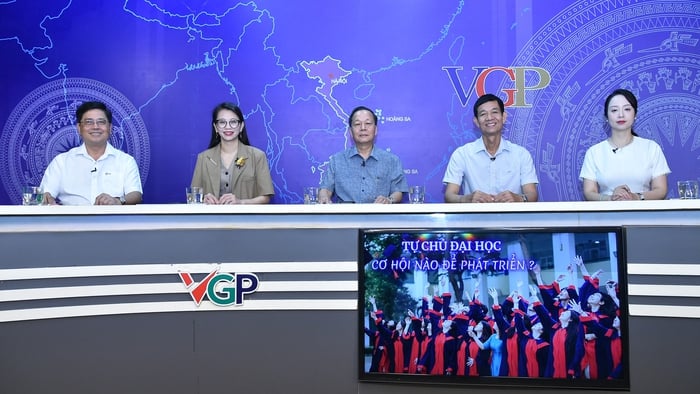
Guests attending the seminar (from right to left): MC Minh Ngoc; Associate Professor, Dr. Hoang Dinh Phi - Principal of the School of Business and Management (HSB), Vietnam National University, Hanoi; Lieutenant General, Professor, Dr. Nguyen Xuan Yem - Director of the Institute of Non-Traditional Security, School of Business and Management, Vietnam National University, Hanoi, former Director of the People's Police Academy, Ministry of Public Security; Associate Professor, Dr. Luu Bich Ngoc - Chief of Office of the National Council for Education and Human Resources Development; Mr. Vo Quang Lam - Deputy General Director of Vietnam Electricity Group - Photo: VGP/Duong Tuan
To make university autonomy truly effective and substantial
Emphasizing that higher education needs to be positioned at the top of the knowledge pyramid, instead of being popularized, Associate Professor Dr. Hoang Dinh Phi shared the practice of building, managing and operating the School of Business Administration (VNU), one of the rare models of comprehensively autonomous higher education over the past 30 years - not receiving state budget, self-determining organization and being responsible for training quality.
According to Mr. Phi, the journey of university autonomy innovation needs to be based on four core factors: The Party's comprehensive innovation policy, creating a foundation for development; Administrative reform of the Ministry of Education and Training, shifting from "intervention" to "support and supervision"; The spirit of dedication and creativity of the teaching staff, proactive international integration, building standard programs; The proactive role of parents and students, choosing suitable programs, training core values (ethics, will, talent, responsibility...).
And Associate Professor, Dr. Luu Bich Ngoc emphasized: "Autonomy does not mean loosening management. In the new trend, the State needs to play a "constructive" role, focusing on issuing training standards, output standards and strengthening post-inspection to ensure quality can meet the needs of society, instead of pre-inspection as before."
Agreeing with the view that university education is "elite education" and should not be spread out, Professor Nguyen Xuan Yem recommends some important directions:
(i) Developing universities according to the needs of strongly urbanized localities or large corporations .
(ii) Empower principals because "all school innovations must start with teachers, especially principals, who determine the innovation and success of education and training".
(iii) Improving teachers' capacity: "Teachers today must not only be good at teaching but also good at practice. Places that train economics must have business people teaching. People who do not know how to get rich cannot teach others to get rich - that is practice."
(iv) Increasing resources for education: It is necessary to prioritize the budget reasonably, strongly combining with socialization.
(v) Expand international cooperation .
Prof. Dr. Nguyen Xuan Yem also expressed his hope that the Central Government would comprehensively summarize the university autonomy model, from which it could replicate and reshape the strategy for developing higher education in the new period.
Source: https://phunuvietnam.vn/de-tu-chu-dai-hoc-that-su-hieu-qua-thuc-chat-20250711204331858.htm




![[Photo] Nhan Dan Newspaper launches “Fatherland in the Heart: The Concert Film”](https://vphoto.vietnam.vn/thumb/1200x675/vietnam/resource/IMAGE/2025/10/16/1760622132545_thiet-ke-chua-co-ten-36-png.webp)



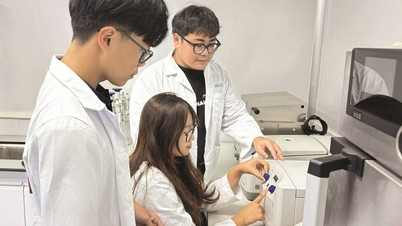





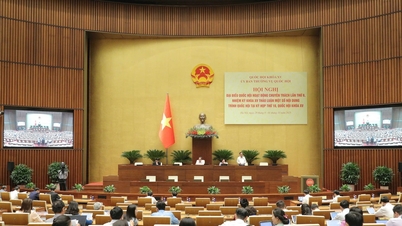

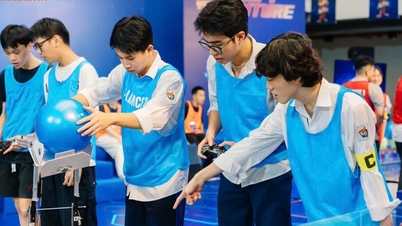

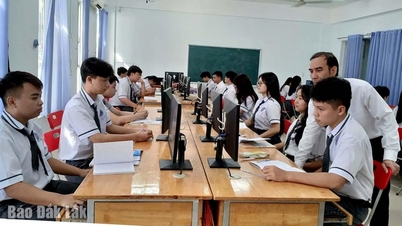


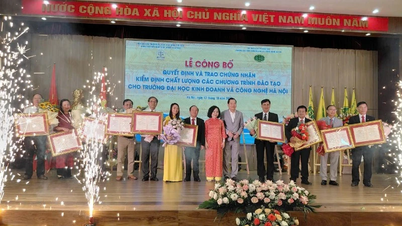

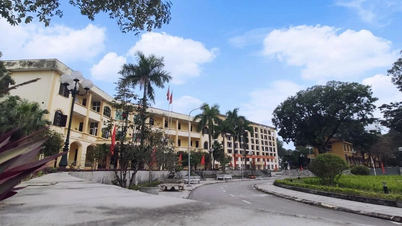

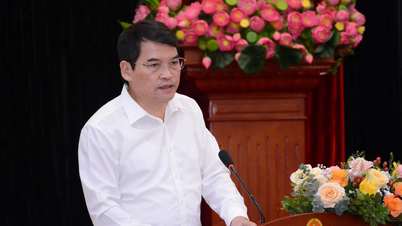
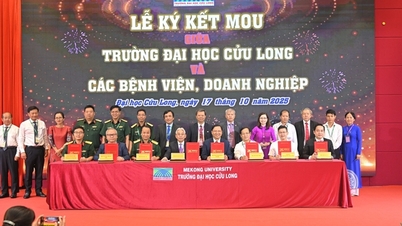


















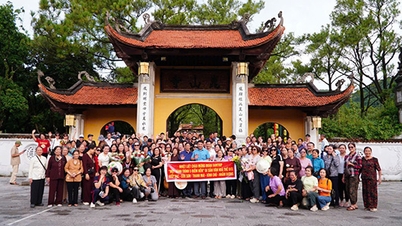










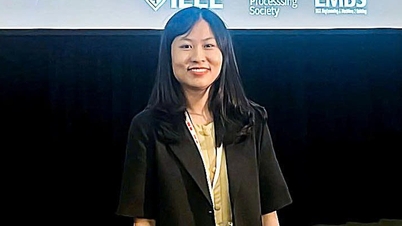


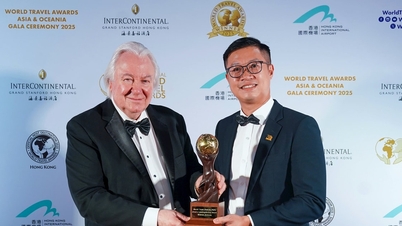
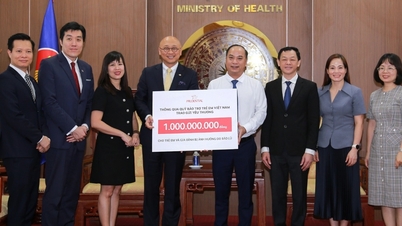
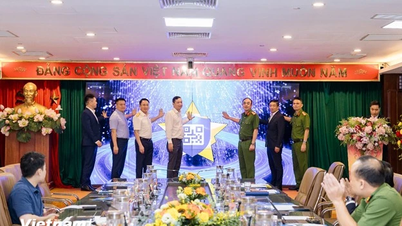
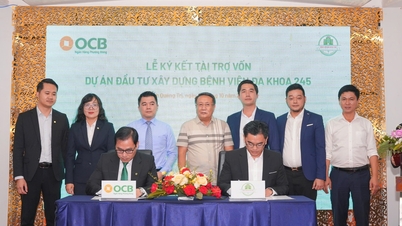


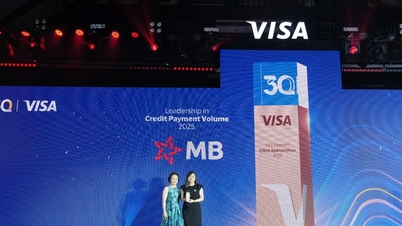









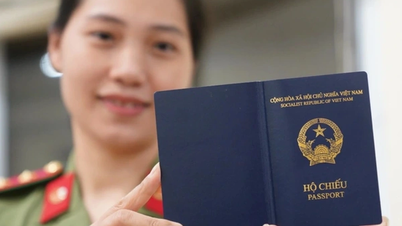



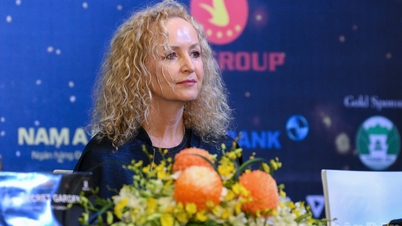
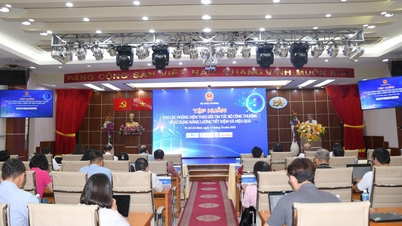

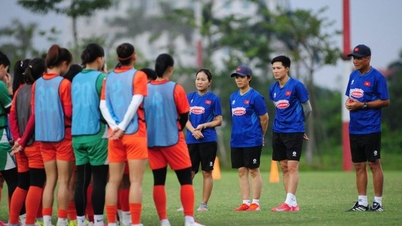

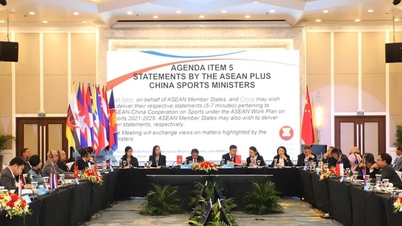
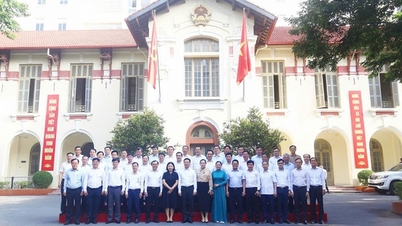

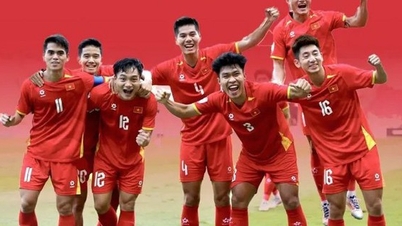


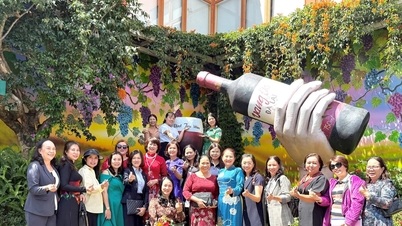



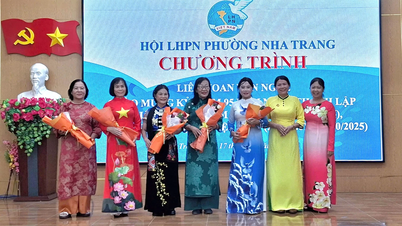

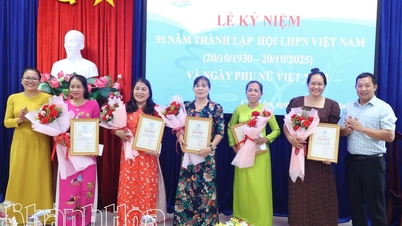


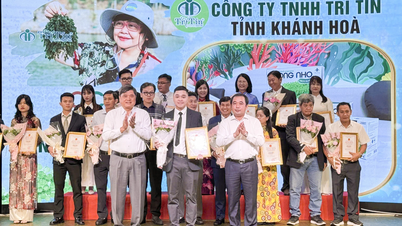
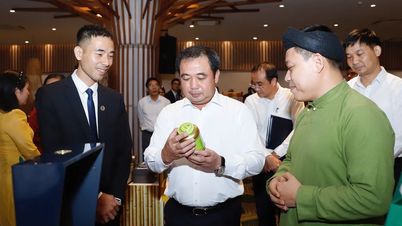




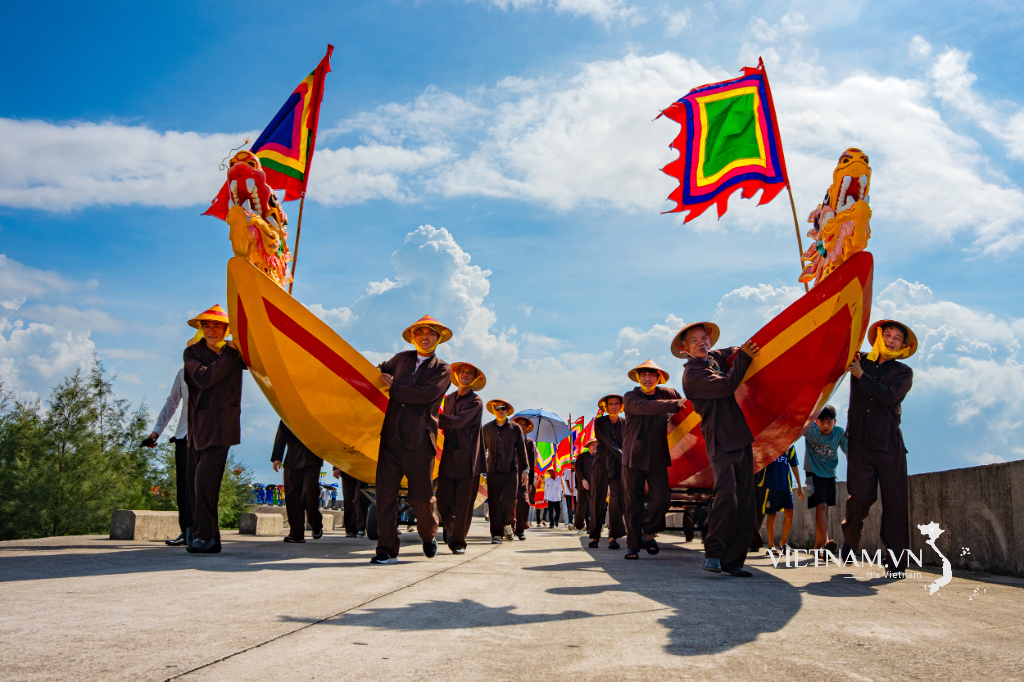


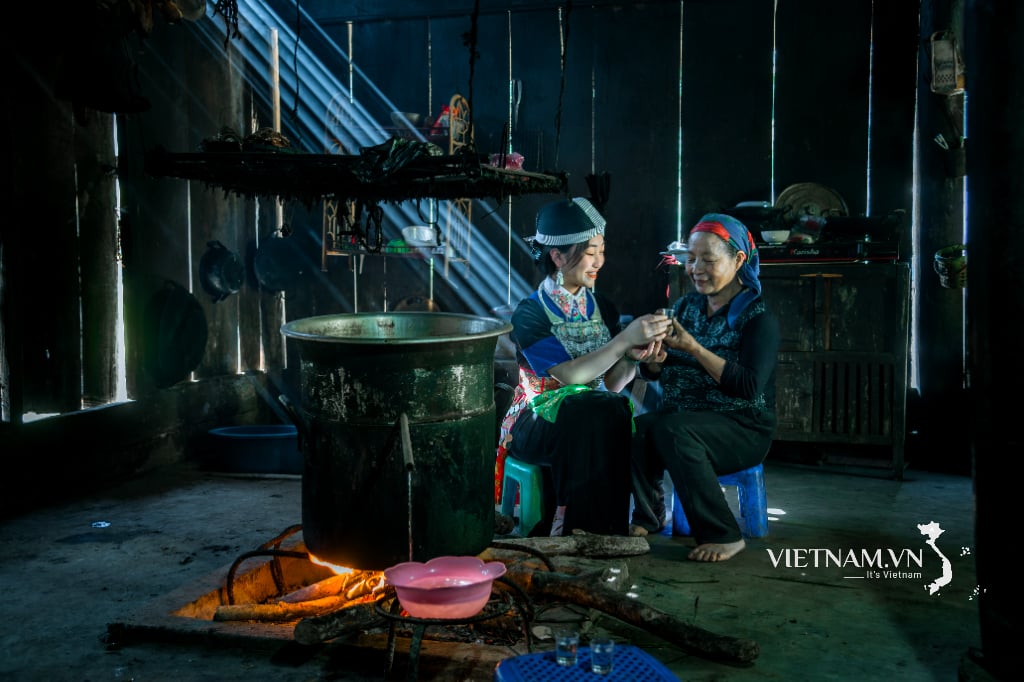
Comment (0)